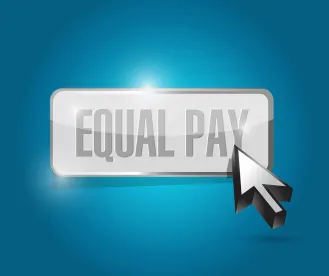Colorado Governor Jared Polis has signed what is one of the toughest enhanced state pay equity laws to date. Colorado has become the ninth state in the country to pass an equal pay law that is more demanding than federal law. The new law goes into effect on January 1, 2021.
Just before the close of the legislative session on May 22, and after months of debate and considerable amendment, two Republicans joined Colorado Senate Democrats in passing the “Equal Pay for Equal Work Act” (SB 19-085). It shares similarities with other enhanced state equal pay laws, including provisions on pay equity, pay history, and pay transparency. However, unlike other states, the Colorado law contains unique notice requirements.
Unique to Colorado
The Colorado Equal Pay for Equal Work Act includes the following two notice requirements, which are found in no other state equal pay law:
- Employers must make reasonable efforts to announce, post, or make known all opportunities for promotion to all current employees on the same calendar day.
- Employers must disclose in each posting for each job opening the hourly or salary compensation, or a range of the hourly or salary compensation, and a general description of all benefits and other compensation offered.
Key Provisions
The new law protects against discrimination because of sex (including gender identity) or sex in combination with another protected status. Employers may not pay an employee of one sex less than an employee of another sex for substantially similar work.
However, an employer can avoid legal liability under the new law if it demonstrates that the entire difference in compensation is based on at least one of the following:
- A seniority system;
- A merit system;
- A system that measures earning by quantity or quality of production;
- The geographic location where the work is performed;
- Education, training, or experience to the extent that they are reasonably related to the work in question; or
- Travel, if a regular and necessary condition of the work performed.
The new law creates a private right of action for employees. A successful plaintiff may recover up to three years of back pay and liquidated damages in the amount of the back pay, unless the employer can show the “act or omission giving rise” to the pay violations was made in good faith.
“Mini-Safe Harbor”
Similar to equal pay laws in Massachusetts and Oregon, the Colorado law provides an incentive for employers to conduct proactive self-evaluations of their compensation practices. While not a complete defense against lawsuits, employers may use evidence of a “thorough and comprehensive pay audit” with the “specific goal of identifying and remedying unlawful pay disparities” to avoid an award for liquidated damages.
Pay History
Colorado joins eight other states with statewide salary history bans applicable to both public and private employers.
Under the new Colorado law, employers may not:
- Seek the wage history of a prospective employee;
- Rely on the wage history of a prospective employee to determine a wage rate; or
- Discriminate or retaliate against a prospective employee for failing to disclose wage history.
Pay Transparency
Finally, the new law prohibits employers from preventing their employees from discussing compensation information with others, or requiring any employee to sign a waiver that prohibits his or her ability to do the same.





 />i
/>i

